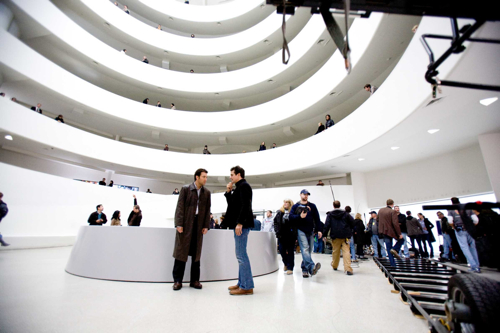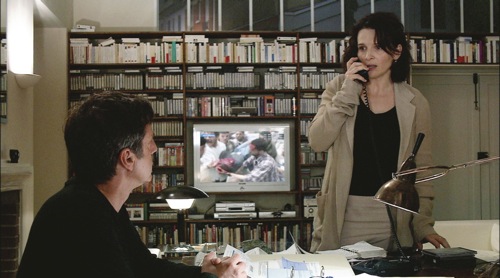
By David Ross. I believe that we are witnessing Europe in its death convulsion. I have in mind Europe’s economic situation, which is worse than ours insofar as there’s no pro-growth, free-market, small-government solution waiting in the wings – but even more I have in mind its spiritual situation. Vastly admiring Children of Men (one of the most moving books I’ve ever read), I’ve been reading some of P.D. James’ mystery fiction. She brilliantly evokes the symptoms of spiritual decay: empty churches, childless couples, bureaucracies people dislike but nonetheless accept as faits accomplis, monuments and traditions that lurk as depressing wraiths of former glory. While living in the UK from 1996 to 2000, I remember picking up on this funereal aura and finding it very unfamiliar and unaccountable. Americans are simply not used to thinking of themselves as occupying the dying embers of history.
James, however, is detached from this dynamic: she observes it without embodying it and understands it only in terms of its external manifestations. She is like H.G. Wells’ Victorian time traveler, puzzled and appalled but in no position to philosophize the finer points of the situation she encounters. In his unnerving novel Elementary Particles (titled Atomised in the UK), Michel Houellebecq provides a full theory. In his historical scheme, the rational impulse arose as a kind of mutation in the cultural DNA of the West; rationalism promulgated scientific materialism; scientific materialism dismantled the structure of religious faith and negated all systems of meaning that transcend the self; the spiritual vacuum was filled by – could only have been filled by – an ultimately unsatisfactory and self-destructive hedonism and social atomism. If this scheme is familiar to the point of being trite, Houellebecq has a subtle feel for the texture of this reality (its brittle intellectualism, its flatness of affect) and a rigorous, dark instinct for the equivalency of all actions once they have been drained of anything except physical meaning. He is also particularly good at demonstrating how his philosophical premises play out in the individual case.

Fancying itself on the cutting edge, film has institutionalized the post-modern manner, but its dabbling in glass and chrome set design, in the spectra of blue-grey, in fractured narrative, is usually nothing more than window dressing. Tom Tykwer’s The International (2009) is typical: a bland thriller involving the usual corporate conspiracy dressed up as post-modern statement. Far more to the point is Michael Haneke’s Caché (English title Hidden, 2005), in which a French literary pundit (on television, of course) suddenly begins to receive cryptically threatening letters and surveillance video of his own house. The film is an intricate cultural puzzle, but its most basic comprehension is that the post-modern bourgeoisie is resourceless to defend or even justify its existence – and that history, far from having ended, increasingly threatens the equilibrium of Europe’s culture of weakness and indulgence.
Nice piece, David. I agree with your points but would point out that scientific materialism as an adopted religious substitute is a leftover from the industrial revolution and subsequent rise of Marxism. That doesn’t mean it’s encoded in western culture DNA, IMO.
I enjoy your writing, but in general, I would recommend you attend the San Diego Comics Con this year (if you can find a ticket) so you can dial down the english lit professor and dial up your inner film geek. Lighten up, have fun. It would make you and your writing more accessible, I suspect. And what’s the use of burnishing that highly developed mind if you can’t use it to delight your fellow creatures?